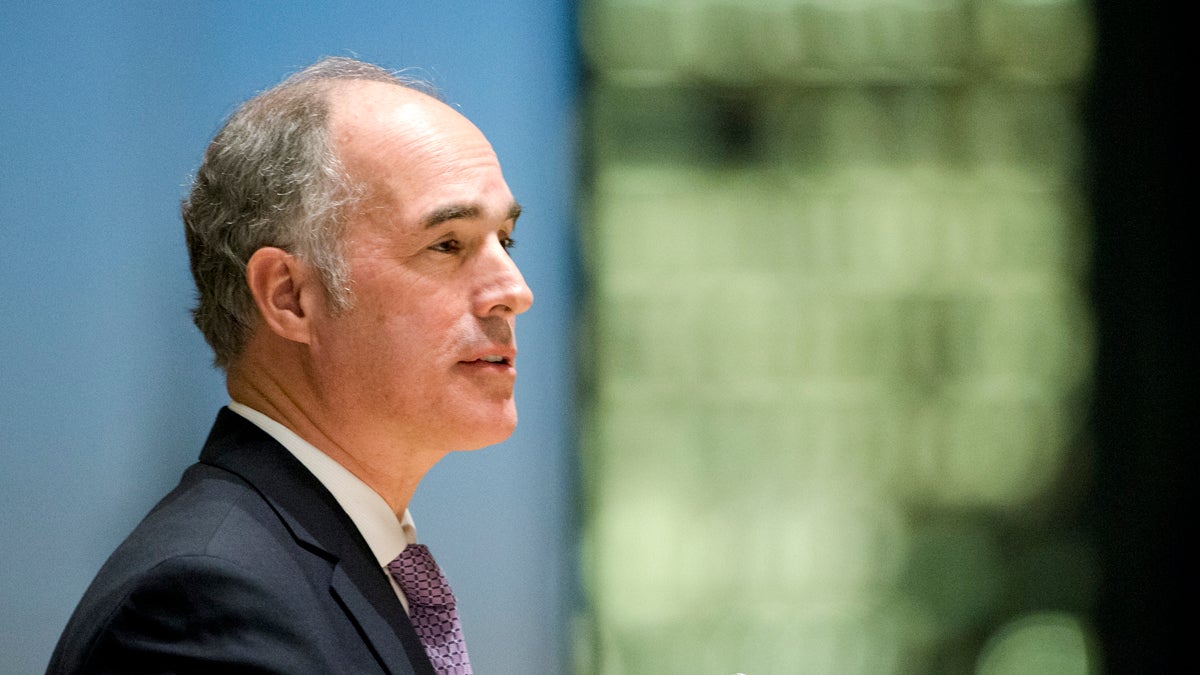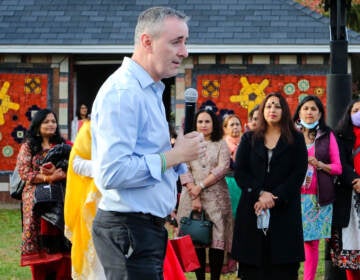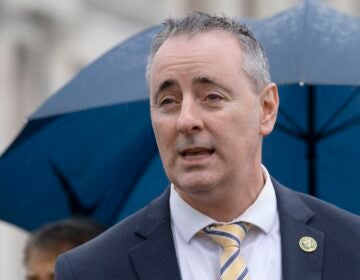Casey testifies on Fattah effort to secure ambassadorship for friend

U.S. Sen. Bob Casey opposes a GOP plan to repeal the Affordable Care Act as part of its tax overhaul legislation. (AP file photo)
For roughly 15 minutes on Thursday, D.C. came to a Philadelphia courtroom.
On the ninth day of indicted U.S. Rep. Chaka Fattah’s federal corruption trial, Pennsylvania U.S. Sen. Bob Casey sat across from the long-serving congressman to answer questions about a letter Fattah sent him shortly after President Obama’s historic general election win in 2008.
The subject: lobbyist Herbert Vederman becoming a U.S. ambassador.
Signed by Fattah, the letter extols Vederman’s public service record, including his time as a deputy mayor of Philadelphia. It also highlights that Vederman “traveled extensively” through Europe and Asia while representing Pennsylvania.
The government alleges the letter (and a similar one handed directly to the Obama administration) was part of a bribery scheme primarily involving Fattah and Vederman, close friends now co-defendants.
In exchange for Fattah’s efforts, prosecutors say, Vederman “showered” the congressman with gifts and money, including $18,000 that helped pay for a house in the Poconos.
On Thursday, Casey said Fattah didn’t cross any lines when he reached out to him about Vederman. Casey told jurors his office received hundreds of recommendation requests because he was an early Obama supporter and sat on the Senate Foreign Relations Committee, which, among other things, vets nominees seeking ambassadorships.
Ultimately, Casey decided not to recommend Vederman, whom Casey had briefly met during his failed bid for Pennsylvania governor in 2002. Vederman was backing Ed Rendell, whom he worked for while he was Philadelphia mayor and who ultimately won the election.
Casey said his decision cost him Vederman’s support when he was running for re-election in 2012.
“He expressed disappointment about not being appointed,” Casey said while detailing a fundraising call he made to Vederman that year.
“The conversation ended fairly soon.”
Casey told reporters outside the courthouse that his testimony was brief because prosecutors called on him for “the simple purpose of confirming the receipt of a letter from the congressman.”
“We get a lot of letters on a lot of subjects,” said Casey.
During his opening statement last week, Mark Lee, one of Fattah’s lawyers, said Vederman and the congressman were “great friends” and that it all added up to “friends helping each other out.”
“This is not a relationship or friendship built on political convenience,” Lee told the jury. “There was no [effort] to influence Congressman Fattah in any way.”
Following Casey’s testimony, the first he’s given in a criminal trial, prosecutors delved into allegations that the head of a Fattah-founded nonprofit spent federal grant money on herself and one of Fattah’s longtime friends.
The government alleges that the Educational Advancement Alliance received $50,000 from the National Oceanic and Atmospheric Administration to cover travel and lodging expenses for students attending an annual education conference Fattah founded.
Thing is, prosecutors say, the National Conference on Higher Education never happened, at least not in October, when Karen Nicholas, the organization’s former CEO, told NOAA it did.
A director of events at the Sheraton Hotel in Center City confirmed that the conference was held in February, the same month it was held at the hotel for the three previous years.
Testimony is expected to resume Tuesday following the Memorial Day holiday.
WHYY is your source for fact-based, in-depth journalism and information. As a nonprofit organization, we rely on financial support from readers like you. Please give today.





